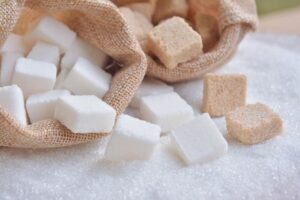
As of January 1, 2026, 26 sugar factories that are members of the Ukrtsukor association processed 10.43 million tons of sugar beets and produced 1.574 million tons of sugar, the association’s press service reported on Telegram.
The industry association specified that sugar yield was 15.19% (+1.13% compared to last season) with beet sugar content of 17.63% (+0.88% compared to last year).
In January, six sugar factories will continue processing sugar beets. The sweet root processing season is expected to end by January 20, 2026, Ukrtsukor concluded.
The association reminded that sugar beet processing is also carried out by the Gorokhiv Sugar Factory, which is not a member of Ukrtsukor and does not provide the association with operational information.
As reported, 1.25 million tons of sugar were produced in Ukraine in the 2024-2025 marketing year, meaning that domestic sugar factories produced 25.9% more product this season than last year. The volume of the domestic market in Ukraine is currently estimated at 900,000 tons per year.
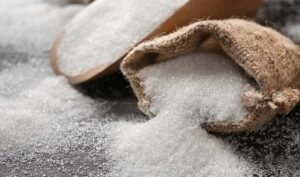
The agricultural company Cygnet has completed the 2025 sugar production season and produced 31.4 thousand tons of sugar between September 30 and December 18, according to its press service on Facebook.
“The average daily processing was 2.8 tons of sugar beets per day. The sugar content of the raw materials received was 17.25%. Overall, the 2025 season was characterized by difficult weather conditions. Due to the rainy autumn, transporting beets from the fields was a difficult task. The sugar factory received and processed 216.6 thousand tons of beets. It produced 31.4 thousand tons of sugar, 98% of which is category I,” said Pavlo Perkhalo, head of the sugar production department, whose words are quoted in the report.
He specified that due to the weather, the company was forced to reduce its average daily processing by 10%, but overall the results are good. The juice extraction period lasted 77 days.
Cygnet cultivates about 29,000 hectares in the Zhytomyr and Vinnytsia regions, where it grows corn, soybeans, winter wheat, and sugar beets. The company’s assets include an elevator with a simultaneous storage capacity of 60,000 tons and a sugar factory with a processing capacity of up to 2,800 tons of beets per day (both in the Zhytomyr region).
The company also has a dairy business (605 cows), whose products are sold to local processors.
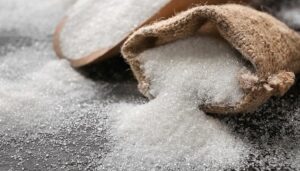
Ukrainian sugar in 2025 turned out to be a very bitter topic and a sore point in negotiations on trade in agricultural products with the European Union. The industry’s plans for 2026 are to increase the share of Ukrainian sugar on the European market, said Yana Kavushevska, head of the National Association of Sugar Producers of Ukraine “Ukrtsukor,” Yana Kavushevska at the conference “Agribusiness in Ukraine” in Kyiv on Thursday.
She noted that during the preparation of the updated trade agreement, the Ukrainian side was not prepared to deal with the powerful sugar lobby and its stakeholders in the EU, along with their strong support at the political level.
Another surprise was the European community’s bias against Ukrainian agricultural products. Among the most absurd myths, Kavushevska named the inexhaustible potential of the Ukrainian agricultural sector, the dominance of agricultural oligarchs, etc. Both Ukrainian agricultural associations and government officials had to refute these myths.
“One of the areas of our communication was to explain to Europeans that the Ukrainian sugar industry is a continuation of the European one. We use all the inputs that we purchase in the European Union in our work. (…) For every hectare of sugar beet, we purchase approximately $1,000 worth of goods in the EU. Accordingly, this year we have 200,000 hectares of sugar beet in Ukraine, for which we have purchased $200 million worth of products from the EU,” said the head of Ukrtsukor, adding that such arguments either surprise or are ignored by her European colleagues.
Speaking about the quotas that Ukraine received for sugar supplies to the EU under the updated trade agreement, Kavushevska noted that they had increased fivefold compared to the previous ones.
“Indeed, the results we have achieved with the quota received in the European Union for sugar show a fivefold increase — from 20,000 tons to 100,000 tons. Is this a lot or a little? Probably no one could be satisfied. But I am sure that if there had been no effective agricultural and social communication, this quota could have been smaller,” said the head of Ukrtsukor.
She stressed that the EU likes predictability, balance, and foreseeability. This is how she explained the need for Ukraine to introduce internal licensing for sugar exports to the European Union. In her opinion, this mechanism will allow Ukrainian sugar producers to eventually become not just technical suppliers of products to the EU, but gradually transform into full-fledged members of the European market.
“Yes, it costs producers who want to export additional expenses for obtaining documents, complications, and delays in possible deliveries. But this (internal quotas – IF-U) is what demonstrates to Europeans that we know how to work and regulate the market,” the expert explained.
Kavushevska named another complication of the updated trade agreement for sugar producers as the European Union’s application of the concept of a “critical quota” to Ukrainian sugar. It provides for the importer to deposit financial guarantees into special accounts, which will be returned to them 3-30 days after customs clearance of goods received from Ukraine. According to the expert, this mechanism is one of the ways to prevent the uncontrolled spread of Ukrainian sugar in the EU. At the same time, it is an unpleasant moment for European buyers, who have to freeze their own working capital for a certain period.
Speaking about the sugar producers’ plans for 2026, the head of the association said that the industry will continue to establish contacts with the European sugar industry and hopes that licensing will continue as an export mechanism. In addition, benchmarks will be developed for key production indicators so that the industry can prepare for integration into the European market.
“For Ukrainian sugar producers, the European market is virtually the only option. We cannot compete for Africa because Brazil will always dominate there logistically. Our task is to gain a foothold in Europe, increase Ukraine’s share as much as possible, and eventually ensure the European Union’s self-sufficiency in sugar,” Kavushevska concluded.
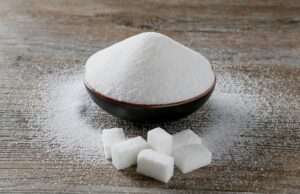
In the first three months of the 2025-2026 marketing year (September-November), Ukraine exported 116,100 tons of sugar, of which about 95% was sent to the world market, according to the National Association of Sugar Producers of Ukraine “Ukrtsukor.” According to the association, in September-November 2025, the following structure of Ukrainian sugar exports to the main buyer countries was formed:
Lebanon – 37% of the volume of supplies,
Syria – 18%,
North Macedonia – 8%,
Bosnia and Herzegovina – 7%,
United Arab Emirates – 7%.
Thus, the top five importers accounted for more than three-quarters of all sugar exports during the period. The remaining volumes were distributed among other countries in the Middle East, Africa, and selected European markets.
Ukrtsukor specified that as of the first ten days of November 2025, 26 sugar factories belonging to the association produced 880,000 tons of sugar, which is 100,000 tons, or 10.2%, less than on the same date in 2024.
Of the total exports in 2024/2025 MY, 17% went to EU countries and 83% to the global market, while in the previous season the ratio was 77% to the EU and 23% to other destinations.
According to industry estimates, the main buyers of Ukrainian sugar in 2024/2025 MY were the EU as a whole, Turkey, Libya, North Macedonia, Lebanon, and Somalia, with Bulgaria remaining the largest importer among EU countries.

Astarta, Ukraine’s largest sugar producer, earned EUR43.70 million in net profit in January-September 2025, down 42.2% from the same period last year.
As noted in the company’s report to the Warsaw Stock Exchange, net profit in the third quarter of this year amounted to EUR 1.43 million, which is 20 times less than in the third quarter of last year.
According to the document, Astarta’s revenue for the nine months decreased by 22.4% to EUR342.78 million, although in the third quarter, compared to the same period last year, the decrease was only 3.8% to EUR116.16 million.
At the same time, due to the increase in production costs and a smaller increase in the net value of biological assets, gross profit for the nine months decreased by 34.2% to EUR121.05 million, while in the third quarter, it fell by 48.8% to EUR29.34 million.
As a result, EBITDA for the nine months amounted to EUR101.46 million, which is 22.9% less than for the nine months of last year.
Astarta specified that, excluding the impact of IAS41, the gross margin was 33% (-4 p.p. year-on-year), while the EBITDA margin even increased by 3 p.p. to 28%.
It is also noted that operating cash flow for the period decreased 3.6 times compared to the same period last year, to EUR 37.41 million, mainly due to the previous reduction in inventories, while investment cash flow doubled compared to the same period last year, to EUR75.44 million, with the largest investments made in the soybean processing and agriculture segments.
According to the published data, the main source of income for the agricultural holding in the reporting period was agriculture, which provided 33% of this income, or EUR112 million (-23% compared to the same period last year).
Sugar production accounted for 32% of Astarta’s revenue, or EUR 108 million (-36% compared to the same period last year).
Revenue from soybean processing remained stable at EUR 77 million, accounting for 22% of Astarta’s consolidated revenue. Revenue from livestock farming increased by 14% compared to the same period last year, reaching EUR 42 million, or 12% of total sales for the nine months of 2025.
Export revenue amounted to EUR 218 million, or 63% of sales.
Astarta is a vertically integrated agro-industrial holding operating in eight regions of Ukraine and the largest sugar producer in Ukraine. It comprises six sugar factories, agricultural enterprises with a land bank of 220,000 hectares, dairy farms with 22,000 head of cattle, an oil extraction plant in Globino (Poltava region), seven elevators, and a biogas complex.
In the first half of 2025, Astarta reduced its net profit by 10.3% to EUR47.11 million, while its consolidated revenue fell by 29.3% to EUR320.71 million.
On June 12 this year, the shareholders’ meeting approved the payment of dividends for 2024 in the amount of EUR0.5 per share for a total of EUR12.5 million, which is in line with the figures for the previous two years.
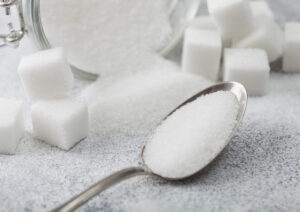
Astarta, Ukraine’s largest sugar producer, reduced revenue from sales of its key products by 22% to EUR343 million in January-September 2025 compared to the same period in 2024.
According to data published by the holding on the Warsaw Stock Exchange, the main source of income for the agricultural holding in the reporting period was agriculture, which provided 33% of this income, or EUR112 million (-23% compared to the same period last year).
Sugar production accounted for 32% of Astarta’s revenue, or EUR 108 million (-36% compared to the same period last year).
Revenue from soybean processing remained stable at EUR77 million, accounting for 22% of Astarta’s consolidated revenue. Revenue from livestock farming increased by 14% compared to the same period last year to EUR42 million, or 12% of total sales for the first nine months of 2025.
Export revenue amounted to EUR218 million, or 63% of sales.
Gross profit amounted to EUR121 million (-34% year-on-year) with a corresponding gross margin, which decreased to 35% compared to 42% in 2024.
EBITDA amounted to EUR101 million, down 23% year-on-year, with EBITDA margin stable at 30%.
Excluding the impact of IAS41, gross margin was 33% (-4 p.p. year-on-year) and EBITDA margin was 28% for the first nine months of 2025.
Astarta is a vertically integrated agro-industrial holding operating in eight regions of Ukraine and the largest sugar producer in Ukraine. It comprises six sugar factories, agricultural enterprises with a land bank of 220,000 hectares and dairy farms with 22,000 head of cattle, an oil extraction plant in Hlobyn (Poltava region), seven elevators, and a biogas complex.
In the first half of 2025, Astarta reduced its net profit by 10.3% to EUR47.11 million, and its consolidated revenue decreased by 29.3% to EUR320.71 million.
On June 12 this year, the shareholders’ meeting approved the payment of dividends for 2024 in the amount of EUR0.5 per share for a total of EUR12.5 million, which is in line with the figures for the previous two years.